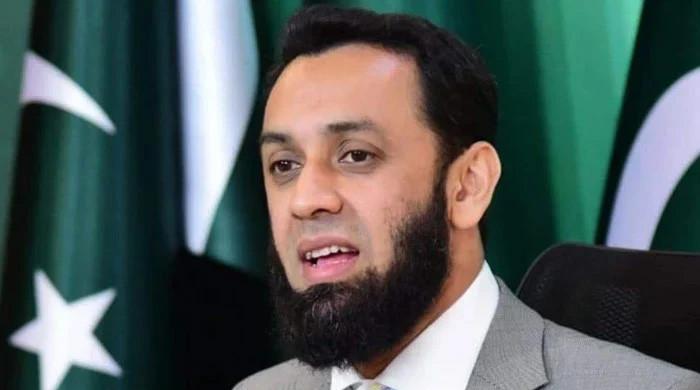Gilgit courts lack jurisdiction in Pakistan: experts
ISLAMABAD: Under several apex court judgments, convictions in absentia is illegal and if any official or authority tries to get any such order implemented, it would amount to violating the law and...
December 01, 2014
He also questioned the jurisdiction of the Gilgit-Baltistan courts in trying citizens of Pakistan.
Barrister Aitzaz Ahsan held in categorical terms that in the Liaqat Hussain case of 1998, in the Aftab Sherpao case and then in all subsequent cases, the Supreme Court continuously upheld the basic principle that no one can be convicted in absentia.
“Pakistani courts and the administration can never accept judgments announced in absentia. If any person, officer, police officer, administration officer, or even any court tries to implement such a decision, it will be violating the Supreme Court judgment,” Aitzaz Ahsan said.
Lawyer and human rights activist Asma Jehangir, who has just received the Right Livelihood Award in Sweden, told Geo News that press freedom is in danger in Pakistan. She said the Gilgit court’s decision against Geo set a bad example. She said she was astonished to read the decision of the Gilgit court.
She questioned if the courts are not answerable to anyone. She said even in countries like the US, people turn down court decisions. She said gone are the days when the courts used to side with dictators.
She said people will not recognise the courts if they do not stand for press freedom and the rule of law. She said fundamental rights enshrined in the Constitution have to be respected and the Gilgit court decision is political in nature.
She said this decision is not only against Geo, but against press freedom which we have achieved after a tough fight and for which our elders sacrificed their lives. She called for accountability of those who are supposed to deliver justice.
Top legal and constitutional expert SM Zafar has said that justice has become a joke in Pakistan now. “Multiple cases on the same crime could have been consolidated at one place but it was not done. Multiple cases regarding the same crime should not be registered and only the first such registered case should be processed,” SM Zafar stated during a talk show hosted by Munib Farooq. SM Zafar said that Article 10-A is the basic right of every Pakistani but this article is not enforced in Gilgit Baltistan which creates serious legal questions.
Justice (retd) Tariq Mehmood said that it will have to be examined how this case against Geo falls in the ambit of “terrorism”. “It is a new trend now that one will become a complainant, will interpret law, will become a lawyer and will also become a judge by oneself and will even announce the judgment on ones’ own complaint. It must be stopped now,” said Justice Tariq Mehmood.
Senior journalist Mujeeb-ur-Rehman Shami said that everyone admits that the Gilgit Baltistan courts don’t have jurisdiction in Pakistan. “A Pakistani cannot even purchase a piece of land or property there so we must acknowledge that there is a serious issue of jurisdiction,” said Shami.
Shami was of the view that Azad Kashmir and Gilgit Baltistan have their own Constitution and legal system while Pakistan’s legal and constitutional system is different which doesn’t recognise their legal system.
Shami said no court in AJK or Gilgit Baltistan had ever given any decision which could endanger media independence in Pakistan. “You can’t even get the membership of their bar,” Shami said. Shami added that it is clear that whole exercise has been carried out to punish one person come what may. Shami said that journalists and media men have fought a long battle for the independence of the judiciary.
Shami said that the leadership of the media bodies has decided and the point of view of Hameed Haroon, who has consulted his colleagues, is the same: that this will not be accepted in any case and that prime minister should issue an executive order to set aside this illegal and unconstitutional punishment which has directly attacked the freedom of the press and independence of the media.
He said that under article 34, the prime minister is chairperson of the concerned counsel and has the powers to grant pardon, reprieve and respite, and to remit, suspend or commute any sentence of any of their courts.
Shami said that today just because of personal grudges, one media house is being targeted and it is evident that the independence of the media will be compromised.
Senior advocate Shafqat Chohan said that the term ‘terrorism’ should be clearly defined in law and it must not be made so subjective.











